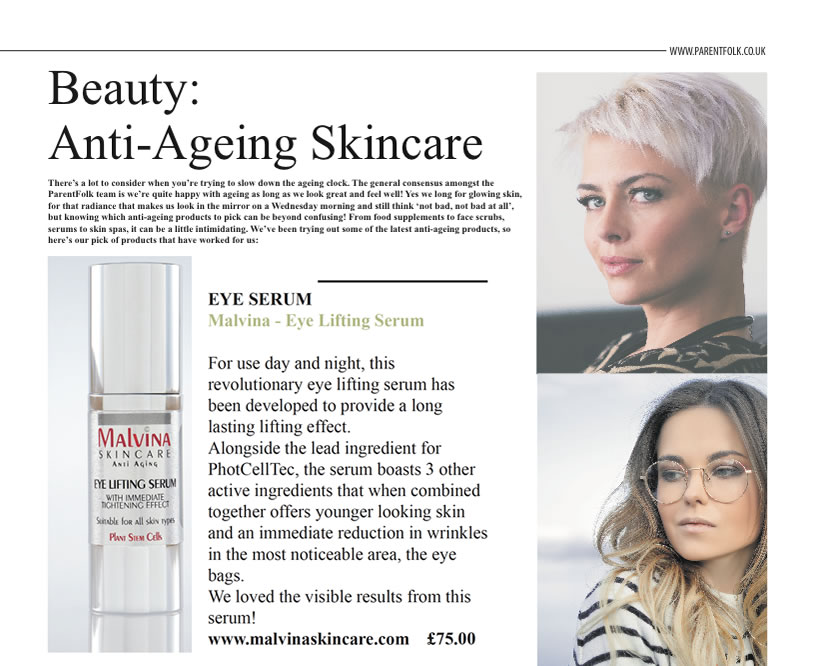 Introduction to the importance of anti-aging skincare:
Introduction to the importance of anti-aging skincare:
In today’s world, where youthfulness and beauty are highly valued, it’s no wonder that the market for anti-aging skincare products has exploded. People are constantly in search of the magic potion that will turn back the clock and help them maintain a youthful appearance. But what really lies behind the science of anti-aging skincare? Are there ingredients that actually work? In this article, we will explore the key ingredients that have been scientifically proven to have anti-aging effects, helping you make informed choices when it comes to your skincare routine.
One of the most important ingredients in any anti-aging skincare product is retinol. Derived from vitamin A, retinol is renowned for its ability to speed up cell turnover, stimulate collagen production, and reduce the appearance of fine lines and wrinkles. Scientific studies have consistently shown that retinol can improve the overall texture and tone of the skin, making it a staple ingredient in many anti-aging products.
Another ingredient that has gained popularity in recent years is hyaluronic acid. Naturally found in the skin, hyaluronic acid is a powerful humectant that can hold 1,000 times its weight in water. This means that it can effectively hydrate the skin, plumping up fine lines and wrinkles, and giving the skin a more youthful and supple appearance. Numerous studies have also demonstrated hyaluronic acid’s ability to improve skin elasticity and reduce the signs of aging.
Peptides are another group of ingredients that have shown promising results in the fight against aging. Peptides are short chains of amino acids that play a crucial role in the production of collagen and elastin, two proteins responsible for maintaining the skin’s firmness and elasticity. By using skincare products containing peptides, you can help boost collagen production, leading to firmer and more youthful-looking skin.
Antioxidants, such as vitamin C and E, are also essential in any anti-aging skincare routine. These powerful compounds help protect the skin against free radicals, which are unstable molecules that can cause oxidative stress and accelerate the aging process. By incorporating antioxidants into your skincare regimen, you can help prevent and repair damage caused by environmental factors and keep your skin looking youthful and radiant.
Lastly, sunscreen is an absolute must-have in any anti-aging skincare routine. The harmful effects of the sun’s UV rays are one of the leading causes of premature aging, including wrinkles, age spots, and sagging skin. By regularly applying a broad-spectrum sunscreen with an adequate SPF, you can effectively shield your skin from the sun’s harmful rays and prevent further damage.
In conclusion, the science behind anti-aging skincare is vast and ever-evolving. While there is no magic potion that can completely halt the aging process, there are ingredients that have been scientifically proven to have anti-aging effects. Retinol, hyaluronic acid, peptides, antioxidants, and sunscreen are just a few of the key ingredients that can help you achieve a youthful and radiant complexion. By understanding the science behind these ingredients, you can make informed choices when it comes to your anti-aging skincare routine and embrace the beauty of aging gracefully.
Explanation of the key ingredients used in anti-aging skincare products
When it comes to skincare, there seems to be an endless array of products promising to turn back the clock and reverse the signs of aging. But do these products really work? The answer lies in the ingredients they contain. In recent years, scientific advancements have shed light on the key ingredients that truly have a positive impact on aging skin.
One such ingredient is retinol, a derivative of vitamin A. Retinol works by stimulating collagen production, which helps to improve skin elasticity and reduce the appearance of wrinkles. Additionally, it enhances cell turnover, resulting in smoother and younger-looking skin. It’s important to note that retinol can cause some skin sensitivity, so it’s best to start with a low concentration and gradually increase use
Discussion on the scientific evidence supporting the effectiveness of these ingredients is crucial when it comes to anti-aging skincare. With countless products flooding the market, it’s important to separate fact from fiction and understand which ingredients truly deliver results. Luckily, advancements in scientific research have shed light on the efficacy of several key ingredients that can help combat the signs of aging.
One such ingredient is retinol, a derivative of vitamin A that has been extensively studied for its anti-aging properties. Research has shown that retinol can increase collagen production, reduce the appearance of wrinkles, and improve skin texture. Its ability to exfoliate the skin also helps to promote cell turnover, resulting in a brighter and more youthful complexion. Numerous studies have demonstrated the efficacy of retinol, making it a popular choice in many anti-aging skincare products.
Another ingredient backed by scientific evidence is hyaluronic acid. This naturally occurring substance plays a crucial role in maintaining skin hydration and elasticity. As we age, the production of hyaluronic acid decreases, leading to dryness and the formation of fine lines and wrinkles. By topically applying hyaluronic acid, studies have shown that it can help restore moisture to the skin, improve its texture, and reduce the appearance of wrinkles. Its ability to retain water molecules also gives the skin a plumper and more youthful appearance.
Antioxidants, such as vitamin C and vitamin E, have also been extensively studied for their anti-aging effects. These powerful ingredients help to neutralize harmful free radicals, which are a major contributor to skin aging. By protecting the skin from oxidative stress, antioxidants can help reduce the appearance of wrinkles, improve skin tone, and promote a more youthful complexion. Numerous studies have shown the efficacy of antioxidants in skincare, making them a crucial component in many anti-aging formulations.
Peptides are another group of ingredients that have gained recognition for their anti-aging benefits. These small proteins stimulate collagen production and help improve skin elasticity. Several studies have shown that peptides can reduce the appearance of wrinkles, enhance skin firmness, and improve overall skin texture. With their ability to target specific skin concerns, peptides have become a popular ingredient in many anti-aging skincare products.
While there are many other ingredients that claim to have anti-aging properties, it’s important to prioritize those supported by scientific evidence. By understanding the science behind these ingredients, consumers can make informed choices and select products that truly deliver results. It’s always advisable to consult with a dermatologist or skincare professional to determine the best ingredients for individual skin concerns. With the right combination of scientifically proven ingredients, achieving youthful and radiant skin is within reach.
When it comes to anti-aging skincare, there are countless products on the market that claim to turn back the hands of time. But do they really work? The answer lies in understanding the science behind these products and the ingredients that make them effective. In this article, we will explore the science behind anti-aging skincare and highlight some ingredients that have been proven to deliver noticeable results.
One important aspect to consider when using anti-aging skincare products is the potential side effects. While most products are generally safe for use, it is crucial to read the labels and be aware of any potential reactions or allergies. Some common side effects may include redness, irritation, or dryness. It is always recommended to perform a patch test before using a new product, especially if you have sensitive skin. Additionally, certain ingredients like retinoids may cause sun sensitivity, so it is important to wear sunscreen daily to protect your skin.
Different skin types also require different considerations when it comes to anti-aging skincare. For those with dry skin, it is important to choose products that provide intense hydration. Look for ingredients like hyaluronic acid, which can hold up to 1000 times its weight in water, helping to plump and moisturize the skin. On the other hand, those with oily or acne-prone skin should opt for lightweight, non-comedogenic formulas to avoid clogging pores and exacerbating breakouts. Ingredients like salicylic acid and niacinamide can help control oil production and reduce the appearance of blemishes.
Another key ingredient in anti-aging skincare is antioxidants. These powerful compounds help protect the skin from free radicals, which can lead to premature aging. Look for ingredients like vitamin C, vitamin E, and green tea extract, which have been shown to neutralize free radicals and promote a more youthful complexion. Retinoids are also widely regarded as an effective ingredient in anti-aging skincare. Derived from vitamin A, retinoids work by increasing cell turnover, stimulating collagen production, and reducing the appearance of fine lines and wrinkles.
In conclusion, understanding the science behind anti-aging skincare is crucial for selecting products that truly deliver results. By exploring potential side effects and considering different skin types, you can find the right ingredients that work for you. Whether it’s hydrating ingredients for dry skin or oil-controlling options for oily skin, there are products available to address every concern. Additionally, incorporating antioxidants and retinoids into your skincare routine can help combat the signs of aging and promote a more youthful complexion. So, do your research, read the labels, and invest in products that harness the power of scientifically proven ingredients. Your skin will thank you for it.
When it comes to selecting skincare products, it can often feel like navigating through a labyrinth of promises and claims. With so many options available, it’s easy to get lost in the sea of creams, serums, and lotions. However, making evidence-based skincare choices is crucial for achieving real, long-lasting results. In this article, we will delve into the science behind anti-aging skincare and explore the ingredients that truly work.
One of the most important aspects of evidence-based skincare is understanding the role of active ingredients. These are the components in skincare products that actually deliver the desired effects. When it comes to anti-aging, ingredients such as retinol, hyaluronic acid, and peptides have shown impressive results. Retinol, a derivative of vitamin A, stimulates collagen production and accelerates cell turnover, resulting in smoother and firmer skin. Hyaluronic acid, on the other hand, is a powerful humectant that attracts and retains moisture, plumping up the skin and reducing the appearance of fine lines and wrinkles. Peptides, small chains of amino acids, can help boost collagen synthesis and improve overall skin texture.
Another crucial factor to consider in evidence-based skincare is the concentration of active ingredients. Research has demonstrated that higher concentrations of certain ingredients yield better results. For example, a study published in the Journal of Dermatological Science found that a 0.3% retinol formulation showed significant improvements in wrinkles and skin roughness compared to lower concentrations. It is important to note, however, that higher concentrations may also increase the risk of skin irritation, so it is best to start with lower concentrations and gradually increase as tolerated.
Furthermore, the stability and delivery system of skincare products play a vital role in their effectiveness. Some active ingredients, such as vitamin C, can easily degrade when exposed to air or sunlight. Therefore, it is essential to look for products that are packaged in opaque containers and formulated with stabilizing agents. Additionally, the size and structure of the molecules in skincare ingredients can determine their ability to penetrate the skin barrier. Formulations with smaller molecules or encapsulated ingredients can enhance absorption and maximize efficacy.
In conclusion, evidence-based skincare choices are crucial for achieving optimal anti-aging results. Understanding the role of active ingredients, their concentration, and the stability of skincare products can help guide our choices. By selecting products that have been scientifically proven to work, we can ensure that our skincare routine is not only effective but also backed by reliable research. So, next time you find yourself browsing the skincare aisle, remember to look beyond the marketing claims and seek out the ingredients that have stood the test of scientific scrutiny. Your skin will thank you for it in the long run.


